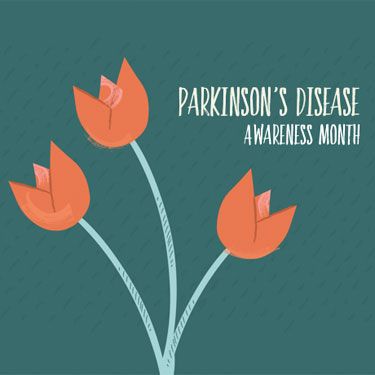
Do you know someone with Parkinson’s? I’m always amazed by how many people not only know someone, but know someone in their family. By that I mean a spouse, parent, grand-parent or other close relative. According to the Parkinson’s Foundation, “Nearly one million will be living with Parkinson's disease (PD) in the U.S. by 2020 . . .” (https://www.parkinson.org/Understanding-Parkinsons/Statistics)
Over two hundred years ago, Dr. James Parkinson described the symptoms of Parkinson’s in his Essay on the Shaking Palsy. Even now, despite Parkinson’s being considered the second most common neurological disease after Alzheimer’s, we’re still not entirely sure about the cause, it is still difficult to identify and treat, and there is still no cure.
What is Parkinson’s?
A simple description of Parkinson’s is that it is a movement disorder caused by a decrease in dopamine production in the brain.
Perhaps the most common symptom people are familiar with is tremor, but there are other conditions, unrelated to Parkinson’s, that also feature tremor as a symptom. Rigidity and bradykinesia (slowness of movement) are two other motor symptoms that are commonly associated with Parkinson’s. By the time patients experience these motor symptoms, 60% - 80% of dopamine cells in the brain are already lost.
People with Parkinson’s also experience non-motors symptoms that they may present many years prior to being diagnosed. The more common of these are constipation, the loss of the sense of smell, and talking in their sleep or acting out their dreams.
The hardest part of understanding and living with Parkinson’s is how different it is for everyone, and how unpredictable it can be. For people who are newly diagnosed it can be particularly frustrating to determine what their life will look like from that point on.
Parkinson’s and Dementia
Some people with Parkinson’s, but not all, may also experience dementia. There are two closely related conditions - Parkinson’s dementia and dementia with Lewy Bodies – that come under the umbrella of Lewy Body Dementia. As is common with many aspects of Parkinson’s, it can be difficult to diagnose which type of dementia a person has, but a basic way to look at is:
- with Parkinson’s, a person will experience motor symptoms first, followed by dementia and
- with dementia with Lewy Bodies, a person will experience dementia first.
Because 60% of Parkinson patients may also experience depression, it may be helpful to remember that depression can masquerade as dementia.
Treatment
Parkinson’s is a movement disorder, and so it makes sense to seek treatment and guidance on living with Parkinson’s from a movement disorders specialist - a neurologist with additional training in movement disorders. He or she also understands the medications and treatment that are most helpful with motor and non-motor symptoms, as well as dementia. In addition, by continuing to engage in physical, mental and social activities, people with Parkinson’s and dementia can keep their brains and bodies functioning at their best, and enjoy a good quality of life.
Author
Sonia Gow is the Program and Community Care Manager for the Inova Parkinson’s and Movement Disorders Center (www.inova.org/move)
You can contact Sonia at sonia.gow@inova.org or 703-375-9987.




